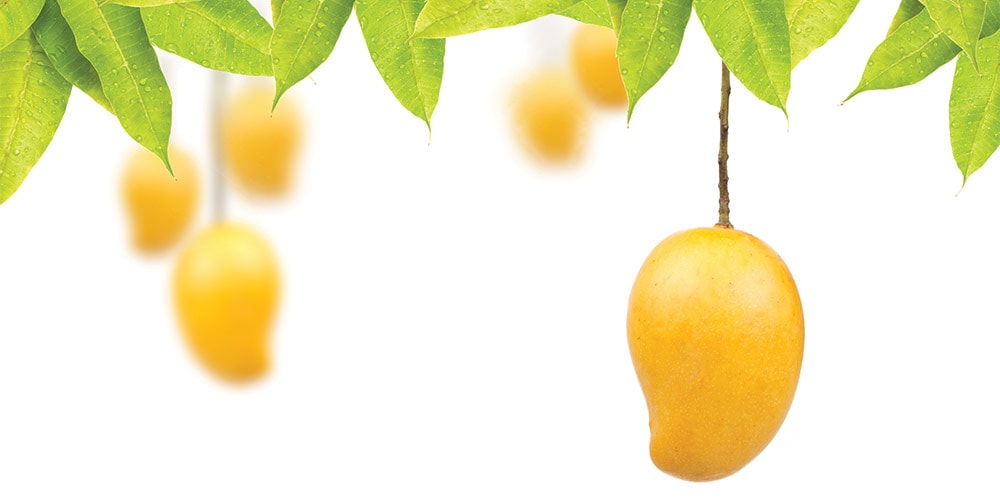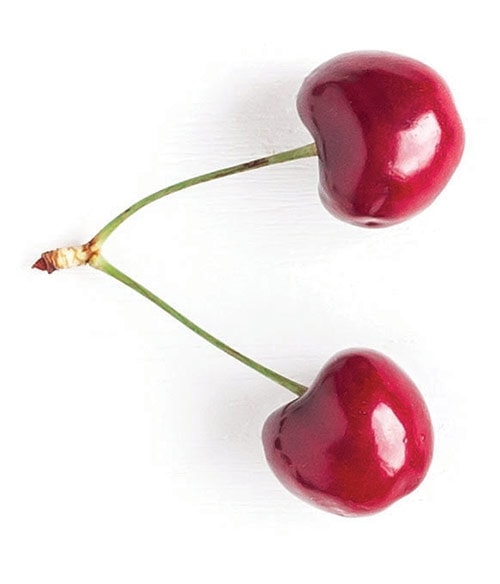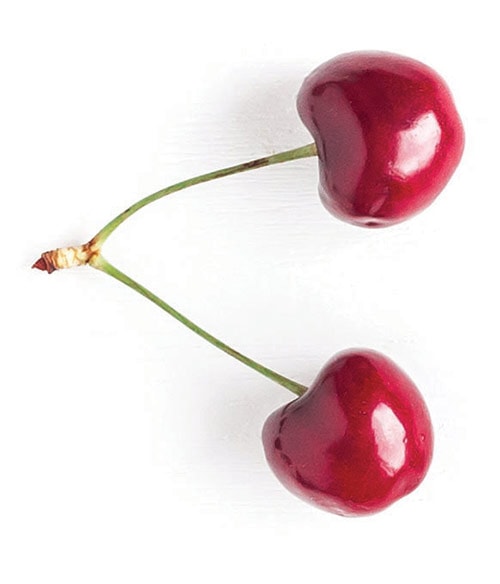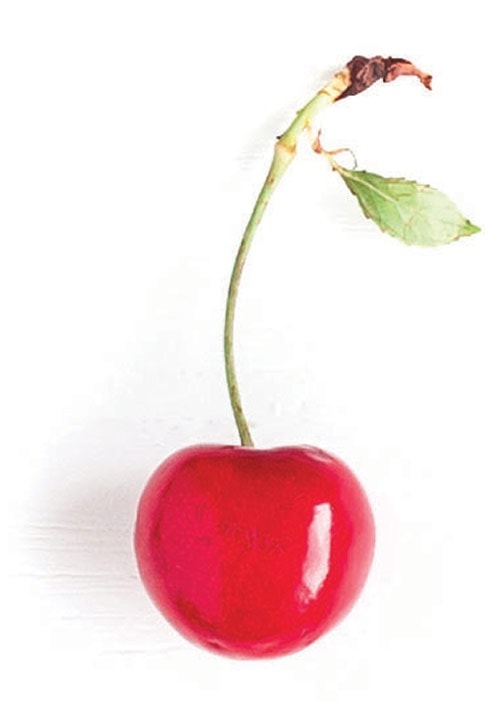
Mangoes? Yes, mangoes: I recently learned a few interesting things about the world’s more than 400 varieties of mango. I learned that mango varieties may present reasonably flabbergasting anomalies—like the mango in Mexico named Tommy Atkins; and the other named Kent. Shouldn’t Mexican mangoes all have Náhuatl or Mayan or Tzotzil or, at least, Spanish names?
Besides names, I learned of the distinction between the best mangoes in the world and the sweetest in the world: the best in the world are supposed to be Alphonso mangoes, grown in the Konkan region of Maharashtra state, India. The sweetest are supposed to be the variety Filipinos call manggang kalabaw.
Coming back to names, it turns out that Filipinos have multiple names for this sweetest of sweet,including Manila mango and Manila super mango. In Mexico this same variety is called Ataulfo mango, as it is in Puerto Rico. Elsewhere it’s known as honey mango; which may well move someone to say that a honey mango, by any other name, is still as sweet!
Mangoes both engender significant national passion and offer much choice for idiosyncracy. When St. Lucians wax fervent over mangoes, it usually is their “mango palwe.” On the campus of the University of the Southern Caribbean and elsewhere on the island of Trinidad, your prime mango fantasy would be about “Julie mango,” a fantasy said to have compromised people’s futures in a now-distant past. Among Guyanese, the Buxton Spice variety awakens most mango enthusiasm.
But all is not fair in mango land. Consumers have also been known to fret about all the fibrous string that gets stuck between their teeth while they sought to enjoy a “long mango,” known in French Caribbean creole as “mango long.” Beyond stringy pulp, mangoes have been critiqued as too green, or too sour, or just completely rotten.
This kind of selectivity is sometimes referred to as cherry picking. No one gets cherries from their dedicated cherry picking of mangoes. Nor does anyone derive much benefit in the spiritual realm from cherry-picking truth. While we may pick and choose mangoes according to our individual preferences, cherry-picking attitudes and actions are entirely unacceptable in the realm of truth. Truth, denounced for its texture or taste, will still confront, however smooth or rough, stringy, sour, or rotten it may seem to us who must face it. When Pharisees repudiated Jesus as a bastard rum-sucker, a glutton, and a drunk (John 9:34; Luke 7:34) it made no difference to the fact of John 3:16. God’s gift of choice, legitimate in the realm of mango preferences, becomes a monumental hindrance to the person who attempts to cherry-pick truth.
Free will exercise is what we do in cherry picking. Free will is the highest creature-defining privilege that a God of sheer love bestows on human beings: the will “is the governing power in the nature of [humans], the power of decision, or of choice.”1 It is what enables each of us to be distinctly herself, himself, themselves; and it is designed to enable us to encounter, recognize, and acknowledge for ourselves the truth of reality that predates us all.
Individual wills permit individuals to experience and relate to reality for themselves, hopefully, in a responsible way, rather than any other, even those ways celebrated as independent, creative, singular or new, that distort, disrupt and destroy our life privilege. God, not humans, invented and invents reality: He “created the heavens and stretched them out,” He “spread out the earth and its offspring,” He “gives breath to the people on it and spirit to those who walk in it” (Isa. 42:5, NASB).2
Created intelligences are ever exploring, discovering, and manipulating new facets of things laid out before us in space-time. Each one arrives at their own sound conclusions about what we encounter; each personally chooses how to be and revel and grow and shine in context of these interactions with material and supernatural reality, both of which predate us all, laid out by God, who is not only before us but also the one who holds together all reality, whether concrete or impalpable (Col. 1:17). Gifted with personal choice, each one may choose living that hews to the sensible lines marked out before us by the only one who knows, and has always known exhaustively about life: the one who Himself is the way, the truth, the life (John 14:6).

Bible believing has more in common than it ever should with cherry-picking mangoes. As mango gourmands have picked their mangoes, Bible readers have also tried to discriminate among the truths they will or will not believe, the instructions they will or will not follow. Decades ago I shared with a genius friend a limitation of mine: I could not connect the Paleolithic period3 to the virgin birth. He freely responded that my limitation was not his. He could accept God as becoming a fetus in the womb of a virgin girl. He could not believe that in six days, as we count them today, God brought into being, out of nothing, birds and bees, fishes and trees, rivers and seas, and you’s and me’s.
There are women, girls, men, and boys who believe life makes no sense, but still want to live. There are others who accept that life makes sense, and that the fossil record gives the history of how the loving God they now serve got to homo sapiens from an explosion just under 14 billion years ago: He needed hundreds of millions of years of suffering to get to us from the Cambrian explosion; and death is the pathway to life in the present. Picking and rejecting biblical miracles—accepting God in the womb of a teenage virgin but not as Maker of a perfectly ordered life on earth in six days—is cherry picking of a major order. And there are Christians who think that fiat creation, Jesus and heaven are wonderful, but hold in abeyance biblical teaching on the heavenly sanctuary and the investigative judgment, a doctrine whose review quickly illustrates the inappropriateness of cherry picking among Scripture’s truths.
David Leonhardt and Stuart A. Thompson have warned American society against allowing public falsification to become an accepted norm.4 Their warning underlines the current relevance of a divine pre-Advent investigative judgment for all earth’s inhabitants. Leonhardt and Thompson speak to the phenomenon of truth, facts, data being consistently distorted before the public eye. Hearing them now alerts us, as never before, to the value, power, and currency of the doctrine of pre-Advent judgment. We see now how the ultimate success of heaven’s investigative judgment, which naturally precedes disposition of rewards in the executive judgment, always demanded the preemptive forensic institutionalization of total, thorough, infallible record keeping.
 High Priest Joshua’s story offers explicit illustration (see Zech. 3:1-5). There the Lord obstructs the accuser’s5 evil zeal to destroy the guilty Joshua. For God’s enemy, the great difficulty is in understanding Joshua’s exoneration. The wannabe prosecutor-executioner argues that he possesses proof that Joshua is his rightful prey. He has the record. To which the query, challenge, and declaration of the Lord’s response as imagined in our following paragraph, demonstrate the utter necessity of Scripture’s sanctuary and judgment doctrines:
High Priest Joshua’s story offers explicit illustration (see Zech. 3:1-5). There the Lord obstructs the accuser’s5 evil zeal to destroy the guilty Joshua. For God’s enemy, the great difficulty is in understanding Joshua’s exoneration. The wannabe prosecutor-executioner argues that he possesses proof that Joshua is his rightful prey. He has the record. To which the query, challenge, and declaration of the Lord’s response as imagined in our following paragraph, demonstrate the utter necessity of Scripture’s sanctuary and judgment doctrines:
You keep a record? We have been keeping records since before We made you a conscious part of reality, before the foundations of this world were laid. We knew you would claim there is a factual justification for your rebellion and cruelties. Precisely why We keep records. They aren’t for Us: We know everything. But you forget sometimes. We know everything, and you want to manipulate the data sometimes. We know everything, including the facts on motive and desire—even when your demons don’t get to fully express the malevolence of their soul;6 even when Our precious children don’t accomplish for Us half of what they long to do in gratitude for boundless grace. We keep a record. That’s why We can declare to the universe, without any denial from you, that you are both “the father of lies”, and “a murderer from the beginning” (John 8:44): what you have long done to facts and data—documented truth—is what you did to Jesus, Truth Incarnate. You want to talk record? We keep a record.

The distinctly Seventh-day Adventist doctrine of the investigative judgment has at times been a focus of some rational dismay: Where were all the books of record stored? What are they for, anyway? Maybe God writes because He forgets things. Perhaps a doctrine of grace is the blight of true righteousness: so God must document things to ensure that no one gets into His house practicing slackness. It’s a pathetically flawed theology, some say, of a mean-spirited little God; its notion of record keeping is a tissue of ludicrous impracticality.
But now that Leonhardt and Thompson must warn us against those who boldly ply their defective wares; now that Marilyn McEntyre’s work Caring for Words in a Culture of Lies7 seems all the more urgent; now that we see, as unprecedentedly, how truth can be shamelessly denied, distorted, degraded and mutilated, we are no longer disturbed by the idea that somewhere, somehow, God will bring every work into judgment (Eccl. 12:14). Recent headlines have taught us of men—yes, men—who have ruled and reigned forever, as it were, over the sexiest places in the world, or the most boring—from fantastic Hollywood to fictitious Lake Wobegon; men once revered who must suddenly step out when truth steps in, step down when truth steps up. Besides recognition of the morality of God’s investigative judgment, there is late-born appreciation of the simple practicality of it: nobody now thinks of heaven’s record keeping as so absurd after all, since everything can now be stored in the clouds.
And now, with David the psalmist, we get the judgment. We want it enough to beg God to do it (Ps. 26:1; 35:24; 43:1). Now, because rather than cherry-pick our preferred doctrines, we long to embrace the whole truth, and Him who is the truth. We pray to be held by Him who holds everything together. And we know that we get all truth only if we are willing to take the full gospel, including its exposé of sinners’ shame: we take it all. I take it all. I take the eternity, called life, that He puts into my hands. I take His sacrifice for me, His death, eating His flesh and drinking His blood, receiving again what I threw away—the life He first gave me and I first spurned. I admit to the sins and sin that broke His heart: and He takes my guilt away in one profoundly incomprehensible and awesome exchange.
I do not cherry-pick; I take it all. Because I cannot cherry-pick with truth: I must believe and receive and live it all by His grace, or believe a lie (2 Thess. 2:11), subscribe to blatant falsehoods, or others modified and thus more persuasive because they come strewn with strands of truth. So I take all the truth as it is in Jesus, as God the Holy Spirit purges from my being the presence and spirit of the father of lies. I take Jesus, who is the truth. And He takes me, according to His bright substitution idea: He takes my filthy garments away, dresses me up in His Sabbath best, proceeds with the judgment, and declares me fit for His reward: a place with Him in the great forever, where He will continue to reveal to me more and ever more of His transcendent truth.
Lael Caesar, associate editor of Adventist Review, loves freedom—freedom in the Son that makes us free indeed.